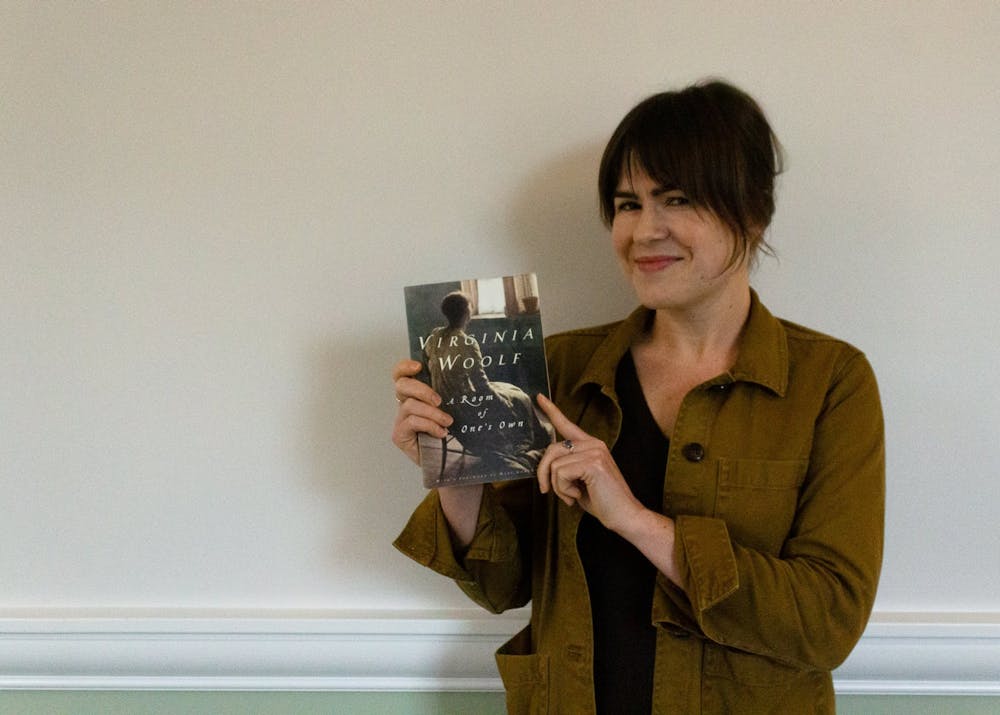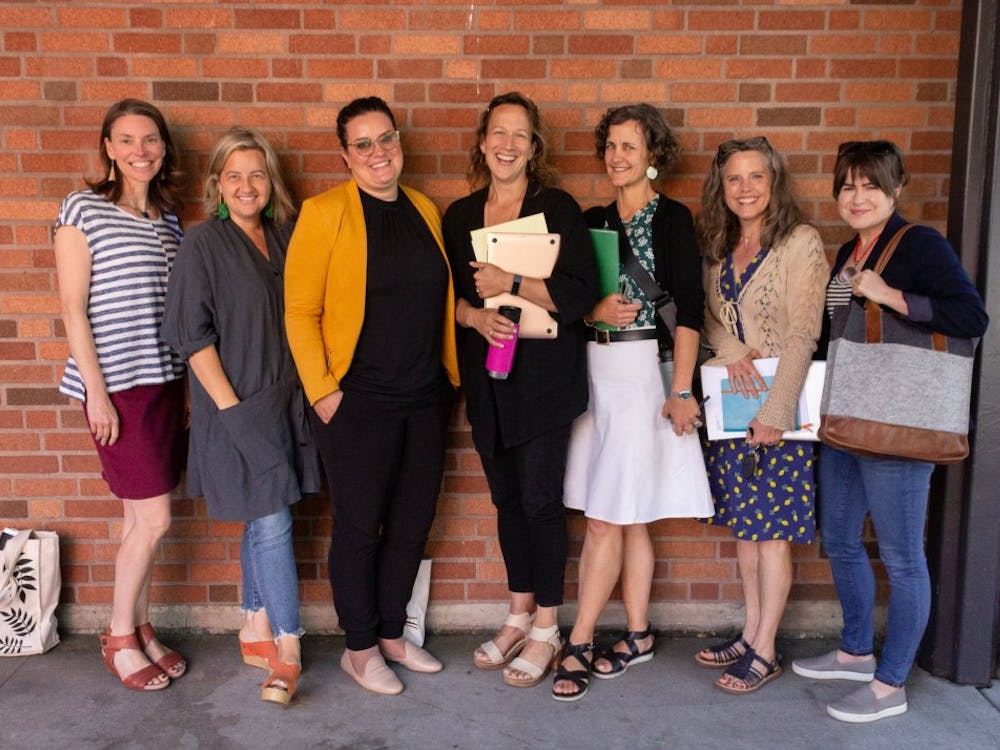As part of a four-part series, The Beacon spoke to professors about the books that impacted them most. Last time, The Beacon spoke to professors Simon Aihiokhai and Wilfred Wu about philosophy and comics books.
Part two features professors Jen McDaneld and Matthew Warshawsky.
Jen McDaneld, English professor
A Room of One's Own, Virginia Woolf
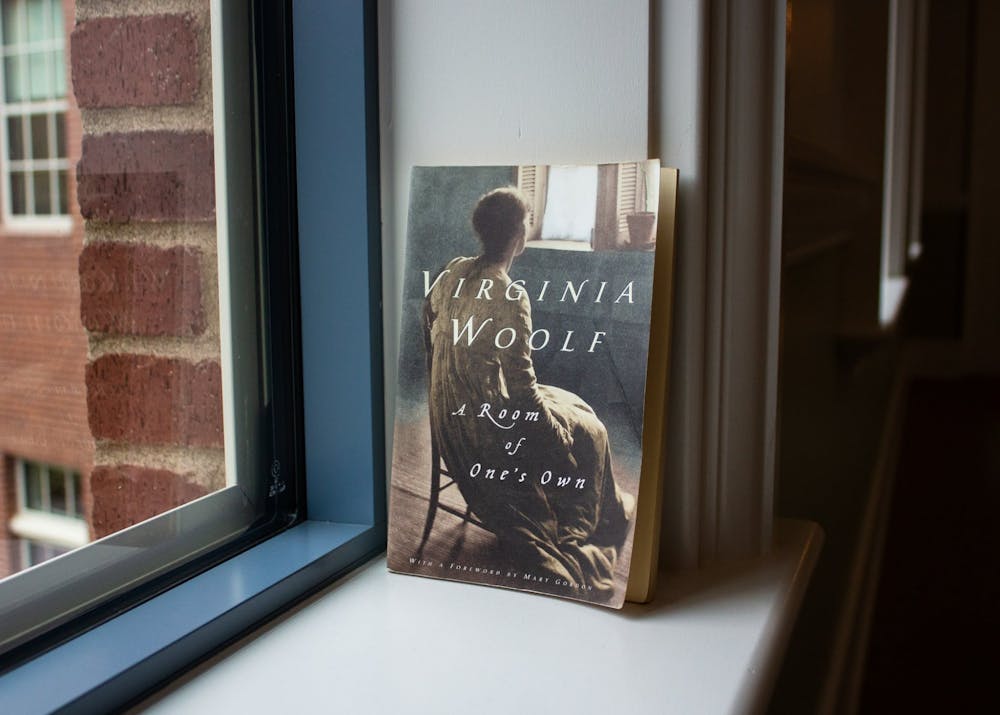
Although McDaneld passionately recommends "A Room of One's Own," she has not yet taught it in one of her classes.
McDaneld read “A Room of One's Own,” a non-fiction book by British author Virginia Woolf, in her junior year of college. McDaneld said this is ironic because she usually specializes in American fiction.
According to McDaneld, Woolf wrote “A Room of One’s Own” as an exploration of what it means to be a female writer. McDaneld appreciated Woolf’s idea that women have not been historically endowed with the same privileges as men, and this disparity has been reflected within their art. Woolf emphasizes how women need privacy and a “room of one’s own,” and to not be occupied by the traditional roles of women, like being the only ones who take care of their family.
Woolf creates a literary criticism that is different from the typical scholarly journal, that McDaneld said she finds herself caught up in today. “A Room of One’s Own” reminds McDaneld that there are other unique types of criticisms.
McDaneld recommends this book to all students. However, she has yet to teach it in a class at UP.
“It’s always a little dangerous to teach something that you really love. I don’t know if that holds true for other teachers, but definitely for me,” McDaneld said. “When you’re really attached to something in some sort of emotional way, I find myself taking over the conversation in more ways than I like to in a class. And sometimes there’s a suspicion that they are not feeling the same way that I feel about.”
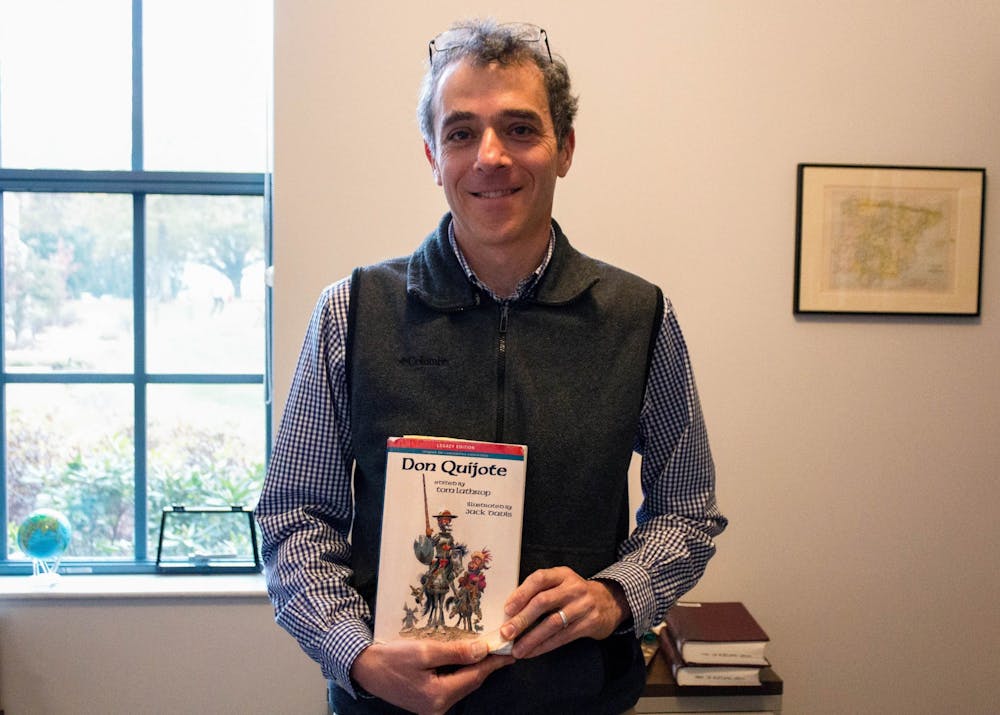
Spanish professor Matthew Warshawsky's favorite book is "Don Quixote" by Miguel Cervantes, which he teaches in an upper-division Spanish class.
Matthew Warshawsky, Spanish professor
Don Quixote, Miguel Cervantes
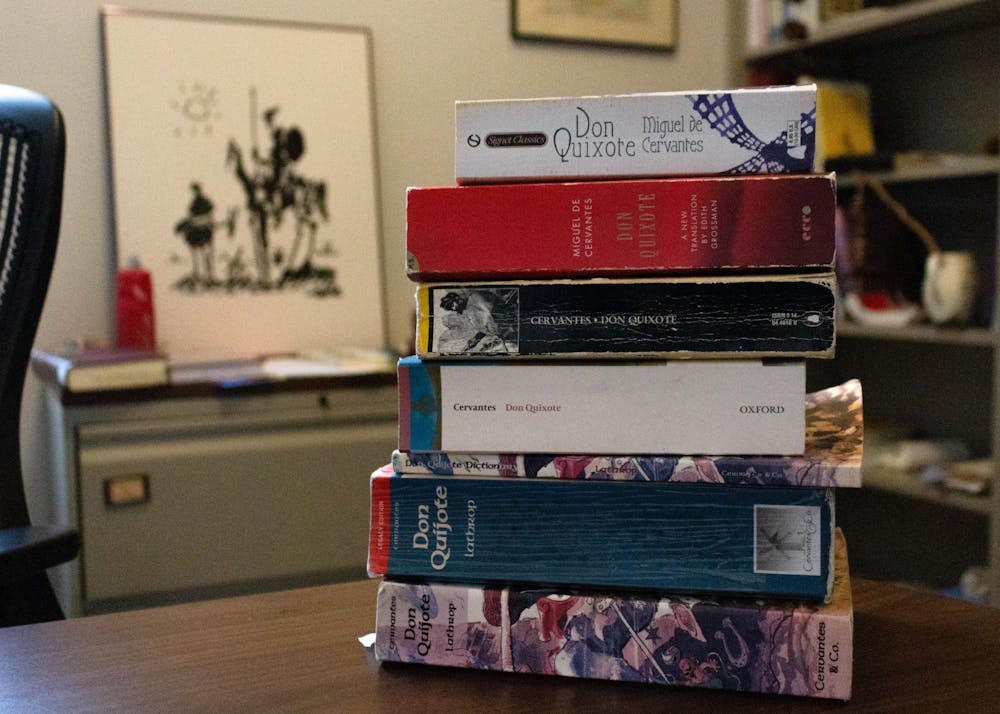
Warshawsky's office is full of copies of "Don Quixote."
Warshawsky teaches an upper-division Spanish course on Cervantes, where they read the entire 900-page book. Warshawsky finds new, relevant themes every time he reads the story, despite it being published in 1605. Warshawsky said he particularly admires the characters for being ordinary people who are trying to do good things in the world.
“It’s very ahead of its time. It’s often considered one of the first modern novels; it’s very progressive and subversive at the same time,” Warshawsky said.
According to Warshawsky, “Don Quixote” is subversive because it is a satire of the novels of chivalry and striking romantic adventures that were written at the time. It is also progressive because it has strong women who are defying the norms that men have created: for example, the women who have to dress like men to become part of the army.
“It’s a really funny book. I laugh out loud reading it, and I can’t say that about many books. It’s also very serious. So, it runs across many emotions,” Warshawsky said. “All of us can identify in some way with the person who becomes Don Quixote, and also to a certain extent his sidekick, Sancho.”
There are Don Quixote trinkets and art all around Spain. In his office, Warshawsky has a figurine of Don Quixote and Sancho, and a Picasso print of the famous duo.
Warshawsky believes that this is a good way to learn about Spanish history and culture, saying that he thinks it shows the soul of Spain.
Fiona O’Brien is a reporter for The Beacon. She can be reached at obrienf21@up.edu.



